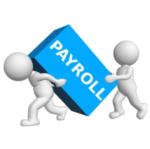Jun
Becoming an Effective CHRO includes Payroll Expertise… or at least an Understanding
 Often the intersection between HR and payroll lies in the fact that they’re housed within the same department, led by a CHRO or HR director. It is obvious why they are together – they are “cost centers” tasked with employee needs. Makes sense, but running payroll requires a significantly different set of skills than HR leaders typically have.
Often the intersection between HR and payroll lies in the fact that they’re housed within the same department, led by a CHRO or HR director. It is obvious why they are together – they are “cost centers” tasked with employee needs. Makes sense, but running payroll requires a significantly different set of skills than HR leaders typically have.
Obviously HR holds a valuable role in the organization’s business functions, acting as a resource and strategic business partner to the entire company. So too does payroll – making sure everyone gets paid smoothly and that benefits are covered. Everyone assumes that payroll just works…until it doesn’t, and you’re sure to have an HR nightmare on your hands if it doesn’t.
But how come HR is assumed to be the best place for payroll to report? No one would think that “HR” is an appropriate manager for sales, engineering, or any other department they are unfamiliar with. A manager needs to understand the various aspects of the roles they oversee – and this goes with payroll as well.
Reporting Structure
Even when acting as its own department, payroll functions as a component of human resources. Payroll involves compensating the employees, whereas other HR roles involve other employee relations issues. Working in conjunction with HR, payroll often acts as the face of the company and at times employee advocates. It’s in this role that they become a true extension of HR.
So payroll needs to fit somewhere because typically payroll does not receive the coveted “seat at the leadership table” of an organization, so HR is a natural place. As an HR professional going up the ranks, you’d be wise to volunteer for cross-functional tasks, spend some time in the payroll department to learn about the discipline as much as time allows, or even just become aware through work friendships of the tasks, requirements, and challenges of payroll.
Process
A skilled HR leader should be able to assist payroll through documentation of processes, which may require an HR leader to familiarize themselves with the intricacies of the payroll process. A CHRO needs to know how and where the process is documented, help ensure that those documents are accurate, the steps can be followed, and are accessible to the necessary people.
For an HR Leader to provide process improvements, help select an HRIS product, or develop an organization chart, this person needs to have a working knowledge of the payroll process.
Compliance
The onboarding process, typically run through an HR department, requires an adept professional to ensure all tax documents are established correctly. Most of what payroll does involves high-levels of compliance. The same goes for HR. This dedication to compliance goes together. As a CHRO or HR leader, if you don’t understand compliance, you’re in serious trouble.
HR leaders typically have a strategic mindset, focusing on aligning their workforce with the business principals of the company. They don’t have time to process payroll and are not likely to ever serve as backup, but they must have the knowledge of how it is run is crucial in their overall strategy.
Recently Posted
Tag Cloud
Office

OH 44210
Connected:
Quick Links
For Employers
For Candidates
Your Source For HR & Payroll News
- Privacy Policy
- Terms & Conditions
- Site Map



